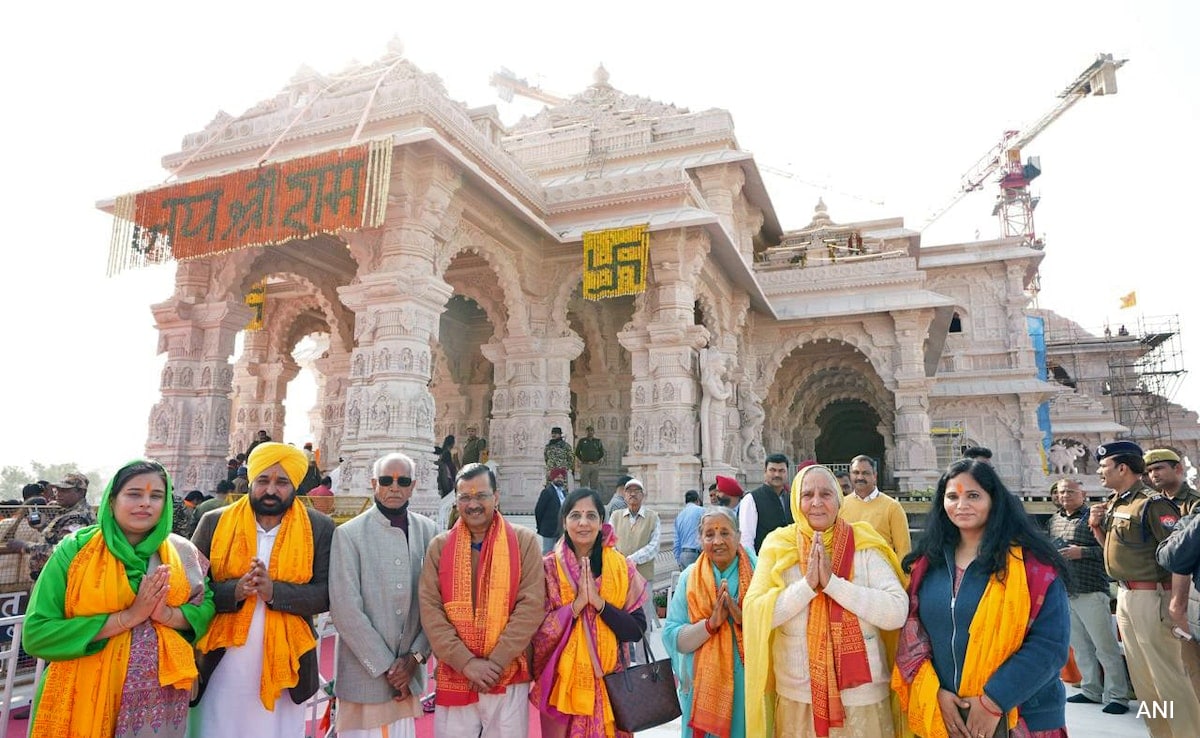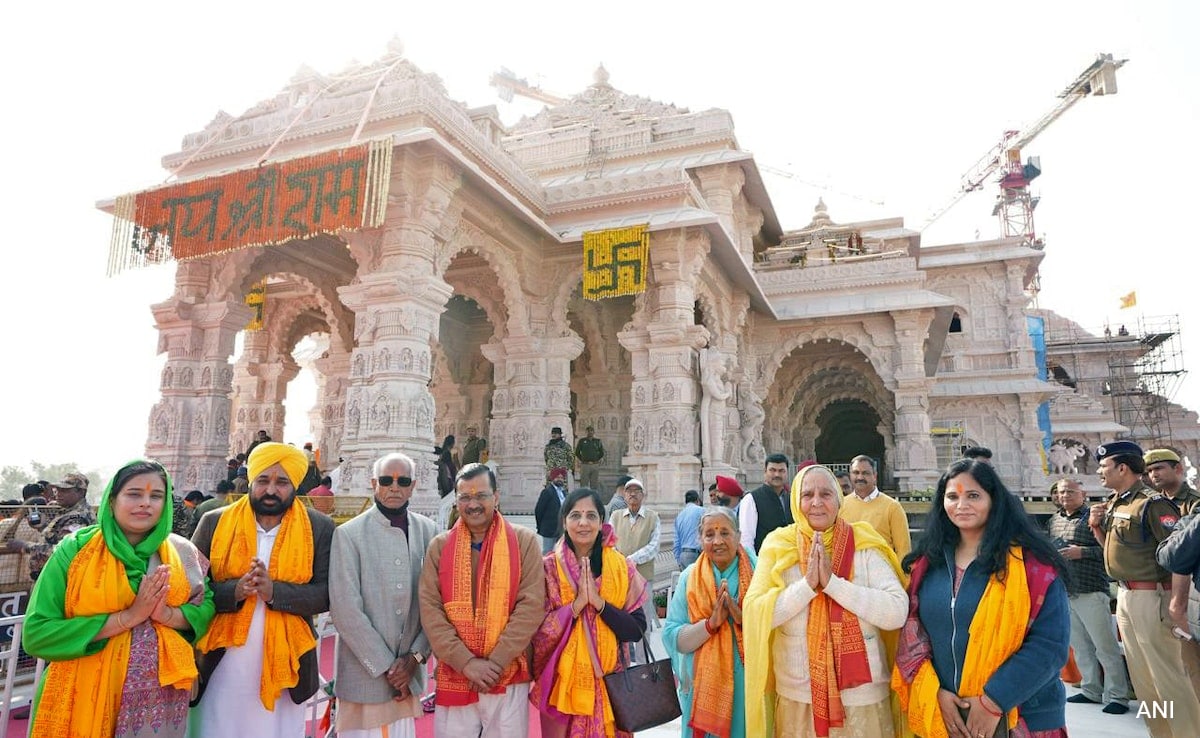

The battle for Delhi is heating up, with the Bharatiya Janata Party (BJP) and the Aam Aadmi Party (AAP) engaged in a daily poster war. While the BJP and the Congress are in the process of finalising candidates for all seats, the AAP, in its final candidate list, denied tickets to 20 MLAs. While the BJP is hoping to make a comeback in Delhi after three decades, the AAP aims to score a hattrick, with the Congress, too, vying to open its account.
The AAP, facing the biggest battle since its inception, is battling 10 years of natural anti-incumbency as its leaders face serious corruption allegations. It has announced a series of freebies that will be implemented if voters back the party. It has also employed a ‘soft Hindutva’ strategy to challenge the BJP head-on.
No Less Hindu
The AAP is out to prove that it is no less a Hindu party than the BJP. In that spirit, it has announced the Pujari Granthi Samman Yojana to give an honorarium to the priests of temples and the ‘granthis’ of the Gurudwara of ₹18,000 per month. The AAP claims this is the first scheme of its kind in the country, accusing the BJP of not honouring priests in the states ruled by them or their allies.
Delhi Chief Minister Atishi fired another salvo at the BJP, accusing the Lieutenant-Governor (L-G) of approving the demolition of temples in the national capital. Speaking on the matter, Atishi said, “The BJP central government is planning to demolish temples and Buddhist temples in different parts of Delhi. The dual face of the BJP is exposed—they claim to protect Hinduism, yet they secretly order the destruction of these sacred places.”
In essence, the AAP is hoping to put the BJP on the back foot. It does not want to go the Congress way, which has been branded as ‘anti-Hindu’ or ‘pro-Muslim’ by the BJP and its supporters. It does not want to be seen as doing ‘minority appeasement’ politics. It is cognisant of the fact that its performance in Kejriwal’s second full term (2020-25) has been weaker compared to its first full term (2015-20), and wishes to deflect the issue.
In turn, the BJP is now under pressure too to announce a similar scheme for Hindu priests in its manifesto. It has also alleged that the AAP is making false claims about the razing of temples.
Zero-Risk Strategy
The Congress’s own similar strategy in the past had yielded limited success. However, for the AAP, strategists feel this is a zero-risk approach as the party already has the majority support of minorities, and thus, the leakage to the Congress could be minimal. The AAP is better placed to defeat the BJP—it received 83% Muslim and 67% Sikh community support in the 2020 assembly polls—and this could help the party consolidate the minority vote.
Kejriwal has admitted that the AAP has not been able to fulfil several promises—mainly, reduction of air pollution, construction of roads and the cleaning of Yamuna. Apart from free bus travel for women, no significant new scheme has been implemented. The party was busy fighting a political-legal battle as several of its ministers, including Kejriwal, were put behind bars. The administration in Delhi was hit severely. Even Kejriwal admitted that his party has not been able to implement some schemes, including the Mahila Samman Yojana.
That’s not all. The victory in the Municipal Corporation of Delhi (MCD) polls in 2022 has added another layer of anti-incumbency: it can no longer blame the BJP for the city’s civic issues, such as sewage problems and lack of cleanliness.
The AAP realises that it’s at risk of losing support among labharthis and Delhiites at large. Which is why it is trying to deflect attention towards Hindutva. The BJP, meanwhile, has countered by saying that it is the original Hindutva party. In doing so, it runs the risk of losing focus on the anti-incumbency against the AAP government and its MLAs, which it can exploit. Since the BJP doesn’t have a chief ministerial face, it can win only by adopting a hyper-local, seat-by-seat approach. The AAP is driving the agenda and the BJP is seen as merely reacting to it.
Even so, the AAP needs to be cautious. Dabbling with Hindutva is like playing on the BJP’s own pitch. It can backfire, too.
(Amitabh Tiwari is a political strategist and commentator. In his earlier avatar, he was a corporate and investment banker.)
Disclaimer: These are the personal opinions of the author



